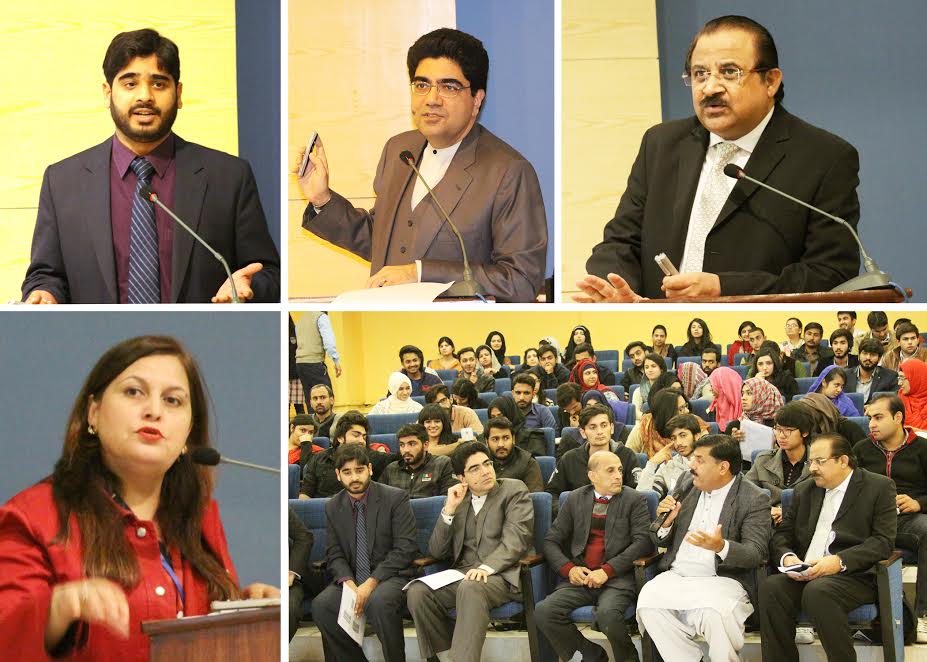ISLAMABAD ( BMZ REPORT )
The Competition Commission of Pakistan (CCP) held a seminar at the Comsats Institute of Science and Technology in which the participants including faculty members and students of management sciences, economics and law were briefed on various aspects of the Competition Law and policy.
The seminar was held as part of the national campaign, ‘Competition Advocacy Academia Drive’, started by CCP to create awareness of the Competition Law among the students and faculty members of the universities.
The seminar at Comsats was attended by the faculty members and students of Comsats in large number. Afia Kamran, senior member of the Faculty of Law welcomed the guests while Dr. Muhammad Tahir, Head of Department Management Sciences Comsats in his speech appreciated the advocacy campaign for academia. He said academia can benefit from that Competition Law which has emerged as an important discipline.
Dr. Shahzad Ansar, Member Office of Fair Trade (OFT) and Advocacy, in his remarks urged the need for active collaboration between CCP and academia for creating awareness of the competition law. To strengthen the awareness, the CCP has developed a 16-week Module on “Economics and Competition Law, which the CCP hopes to become part of the syllabus of various universities, he said.
The presentations by CCP included an animation on Competition Law, a brief overview of the evolution of Competition Policy and Law worldwide by Ahmed Qadir, the Director General Competition Policy and Research and International Affairs CCP, an outline of the Pakistan’s Competition Law by Syed Umair Javed, the Registrar and Director Legal CCP, and an interesting presentation on the role of the Office of Fair Trade (OFT) in curbing deceptive marketing practices by Dr. Shahzad Ansar, Member CCP.
In the interactive session, the students and faculty members asked various queries relating to the Competition Law, which were responded by the Commission’s team. In a detailed meeting held following the seminar, the CCP officials and Comsats faculty members discussed the prospects of future collaboration for creating awareness and adopting the CCP’s Module in the syllabus of the university.

